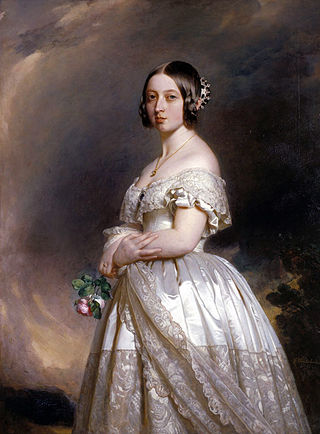| Pronunciation | /əˈlɪʃ(i)ə,-liː-,-siə/ Spanish: [aˈliθja] |
|---|---|
| Gender | Female |
| Language(s) | Spanish form of Alice , from Old High German Adelheidis |
| Origin | |
| Meaning | Nobility |
| Other names | |
| Variant form(s) | Alecia (Alisia), Alycia, Alisha, Alesha |
| See also | Alice, Alyssa, Alix, Alison, Allison, Adelaide, Adelaida, Adele, Adela, Adelia, Adelina, Zélie |
Alicia is a feminine given name. It is a variant of Alice, which comes from the Germanic name Adalheidis (Adelaide), meaning "noble natured" (noble of kind). [1]
Contents
Notable people with the name include:
- Alicia Albe (born 1977), American rhythmic gymnast
- Alicia Alonso (1920–2019) Cuban dancer
- Alicia Amatriain (born 1980), Spanish ballet dancer
- Alicia Andrews (born 1966 or 1967), American politician
- Alicia Appleman-Jurman (1930–2017), Polish memoirist of the Holocaust
- Alicia Arango (born 1958), Colombian politician and businesswoman
- Alicia Ashley (born 1967), Jamaican boxer
- Alicia Austin (born 1942), American fantasy and science fiction artist and illustrator
- Alicia Austria-Martinez (born 1940), Filipina judge
- Alicia Bárcena Ibarra (born 1952), Mexican United-Nations official
- Alicia Barney (born 1952), Colombian artist
- Alicia Barrancos (born 1972), Argentine freestyle swimmer
- Alicia Boscatto (born 1960), Argentine breaststroke swimmer
- Alicia Bridges (born 1953), American pop singer
- Alicia Bruzzo (1945–2007), Argentine actress
- Alicia Cárdeñas (born 1943), Mexican volleyball player
- Alicia Castro (born 1949), Argentine diplomat
- Alicia Beatriz Casullo (1940–2019), Argentine psychoanalyst
- Alicia Chacón (born 1938), American politician
- Alicia Coppola (born 1968), American actress
- Alicia Coutts (born 1987), Australian medley, butterfly and freestyle swimmer
- Alicia Cuarón (born 1939), Mexican-American educator and human rights activist
- Alicia Delibes (born 1950), Spanish politician and teacher
- Alicia Drake (born 1968), British fashion journalist
- Alicia Fabbri (born 2003), Canadian ice dancer
- Alicia Ferguson (born 1981), Australian football (soccer) player
- Alicia Foster, better known as Jodie Foster, American actress
- Alicia Fox (born 1986), American model and professional wrestler
- Alicia Fulford-Wierzbicki, New Zealand actress
- Alicia García-Salcedo González (1903–2003), Asturian lawyer
- Alicia Garza (born 1981), American civil rights activist
- Alicia Gaspar de Alba (born 1958), Mexican-American academic and poet
- Alicia Gironella D'Angeli (born 1931), Mexican chef
- Alicia Goranson (born 1974), American actress
- Alicia Gorey (born 1981), Australian news presenter and reporter
- Alicia Graf Mack (born 1979), American dancer
- Alicia Hall (born 1985), American model
- Alicia K. Harris, Canadian director and screenwriter
- Alicia Herrera Rivera (1928–2013), Chilean feminist lawyer
- Alicia Holloway (born 1996), American ballerina
- Alicia Hollowell (born 1984), American softball player
- Alicia Iturrioz (1927–2021), Spanish portraitist and painter
- Alicia Jurado (1922–2011), Argentine writer and academic
- Alicia Kearns (born 1987), British politician
- Alicia Kersten (born 1988), German football player
- Alicia Keys (born 1981), American R&B singer and pianist
- Alicia Killaly (1836–1908), Canadian watercolour painter
- Alicia Kirchner (born 1946), Argentine politician
- Alicia Koplowitz, Marquise of Bellavista (born 1952), Spanish businesswoman
- Alicia Kozameh (born 1953), Argentine author
- Alicia de Larrocha (1923–2009), Spanish pianist
- Alicia Liu (born c. 1980), Taiwanese model
- Alicia Luciano (born 1983), title-holder of Miss New Jersey 2002
- Alicia Machado (born 1976), former Miss Universe 1996 from Venezuela
- Alicia Markova (1910–2004), British dancer
- Alicia Mastandrea, Argentine politician
- Alicia Mayer (born 1976), Filipina model and actress
- Alicia Minshew (born 1974), American actress
- Alicia Molik (born 1981), Australian tennis Player
- Alicia Gómez Montano (1955–2020), Spanish journalist
- Alecia Moore, better known as Pink, American pop singer
- Alicia Moore (1790–1873), English novelist
- Alicia Moreda (1912–1985), Puerto-Rican soap-opera actress
- Alicia Morton (born 1987), American actress
- Alicia Ostriker (born 1937), American Jewish, feminist poet
- Alicia Parla (1914–1998), Cuban rhumba dancer
- Alicia Parlette (1982–2010), American journalist and cancer survivor
- Alicia Partnoy (born 1955), Argentine human-rights activist
- Alicia Patterson (1906–1963), American newspaper editor
- Alicia O'Shea Petersen (1862–1923), Tasmanian suffragist and social reformer
- Alicia Reece (born 1971), member of the Ohio House of Representatives
- Alicia Rhett (1916–2014), American actress and portrait painter
- Alicia Rickter (born 1972), American model, actress and Playboy playmate
- Alicia Rio (born 1971), Mexican-American pornographic actress
- Alicia Rodriguez (born 1935), Spanish actress
- Alicia Sacramone (born 1987), American gymnast
- Alicia Sánchez (born 1948), Peruvian volleyball player
- Alicia Sánchez-Camacho (born 1967), Spanish politician
- Alicia Shepard (1953–2023), American journalist
- Alicia Smith (born 1984), South Africa cricketer
- Alicia Silverstone (born 1976), American actress
- Alicia St. Germaine, American politician from Michigan
- Alicia Boole Stott (1860–1940), Irish mathematician
- Alicia Thompson (born 1976), American basketball player
- Alicia Vergel (1927–1993), Filipina actress
- Alicia Vikander (born 1987), Swedish actress and dancer
- Alicia Villarreal (born 1974), Mexican singer
- Alicia Vitarelli (born 1978), American television-news correspondent
- Alicia Warrington (born 1980), American drummer
- Alicia Webb (born 1979), American wrestler
- Alicia Roth Weigel, American intersex activist
- Alicia Witt (born 1975), American actress
- Alicia Lynn Yarbrough (died 1993), American murder victim



